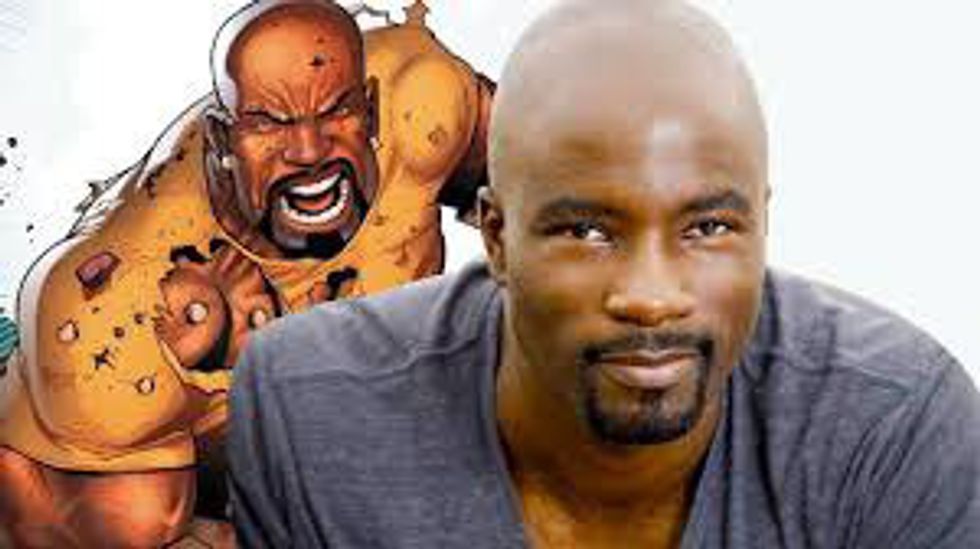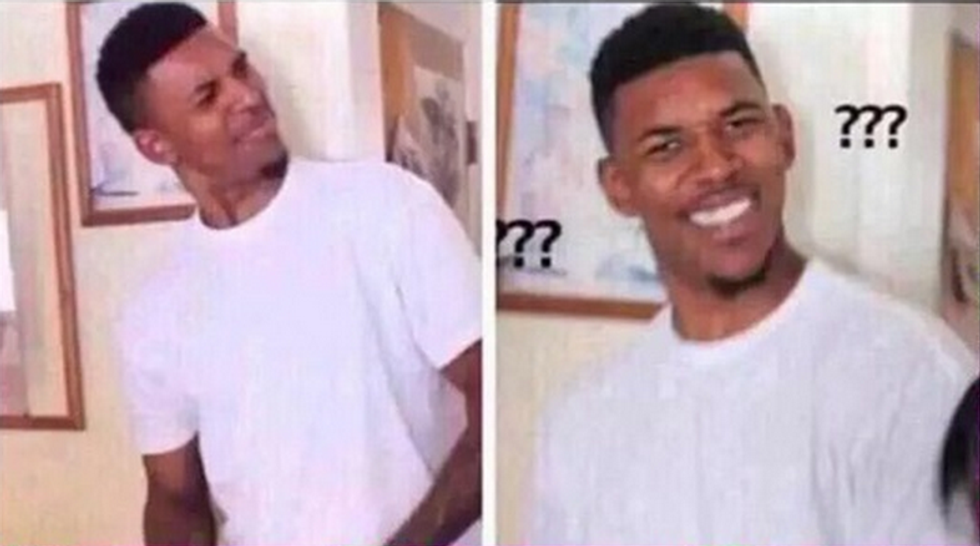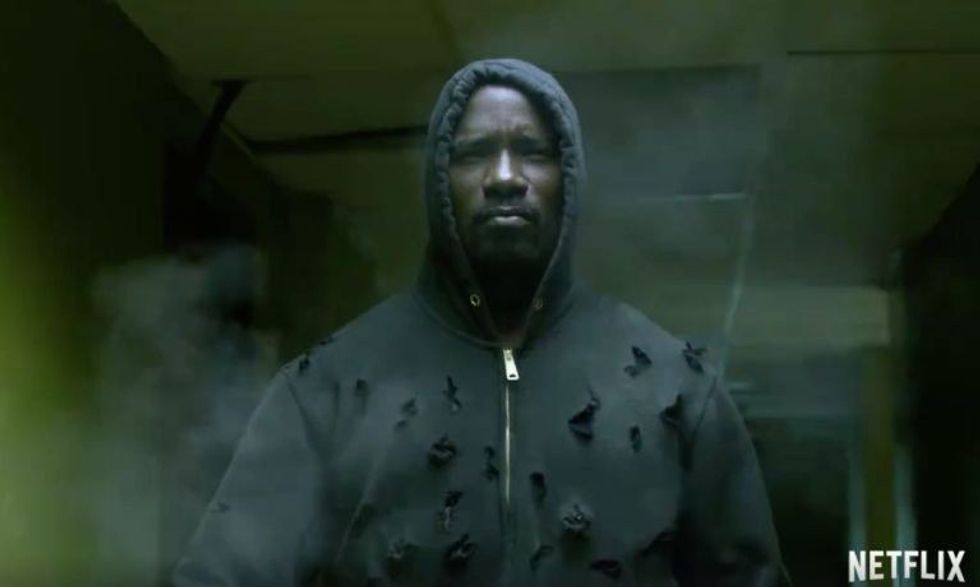I’m not going to lie. Between Solange’s new project, to Luke Cage,Marvel’s newest show, I’ve been on the bandwagon hardcore. With Hurricane Matthew causing the state of Florida to go into a state of emergency, school temporarily shutting down, and most other activities coming to a halt, I sought to spend my free time as nonproductively as possible. And what better way is there than to binge watch a whole season on Netflix?
Now in my own defense, I’ve been a (heavily Marvel-biased) comic book nerd from the time started learning how to read (which was long before being a nerd was considered cool). However, among my favorites were Spider-Man, the X-men, and Black Panther, and while Luke Cage was always an interesting character, I never got around to paying as much attention to his titles as I did others he was associated with, such as Daredevil or Iron Fist. However, following a similar formula as its previous round of Netflix original shows, Marvel has taken a less popular, second-string character, and presented him with a narrative that has put the character at the forefront of the attentions of comic book nerds and casual audience members alike.
So far, Netflix has three original shows based on Marvel characters, these shows being Daredevil, Jessica Jones, and Luke Cage. While they’re entertaining, and relatively non-cheesy (which is hard to do in respect to comic book adaptations), the most interesting thing about the writing involved in these shows is that they all seem to address some form of social commentary. While the martial arts choreography in Daredevil was amazing, the interesting theme of justice was the most perceivable underlying tone, with there being an obvious imbalance of justice between the rich and well connected, and the poor and disenfranchised. The second season also touched on this idea of justice, only this time addressing how different views on justice fit into the morality of a society. Jessica Jones, with its style that paid homage to Noir-esque detective series’, addressed the dynamics of a woman that is by no means a damsel in distress, yet has still been a victim, and her daily struggle to not only rediscover her sense of control, but also prevent others from having to endure that experience. It’s all pretty heavy, and Luke Cage has followed a similar formula, addressing some of the same issues presented in Daredevil, but with one small difference.
And that difference is the issue of race.
“There’s something powerful about a black man who’s bulletproof…and unafraid.”
These are the words that Method Man said to the audience of Sway in the Morning in reference to Luke Cage, and not only did they resonate, but they encapsulated the entire theme of what makes Marvel’s newest show so significant. Having been introduced in the 1970s in response to the Blaxploitation and Kung-Fu media that were popular at the time, Luke Cage is a complex, multifaceted, black superhero, whose story involves having been incarcerated for a crime for which he was wrongly convicted, and being endowed with powers that included super-strength and impenetrable skin, effectively making him bulletproof. The fact that this story, a story that is over forty years old, is able to be conveyed with such minimal adaptation and still carry the same resonance speaks volumes about today’s society.
Now, among the many other endless reasons why Stan Lee is the man, it should be noted that Marvel has always been relatively progressive. Having had one of the most diverse rosters of superheroes and supporting characters in comics it’s also been rumored that the X-men comics, one of Marvel’s most famous publications about mutant superheroes who suffer the fear and bigotry of the “normal” population, have been used on occasion to present a metaphor analogous to the experiences of people of color at the time of its creation. Whether Luke Cage, in his original conception, was created to be a bulletproof black man, or simply a bulletproof hero that just happened to be black is unknown. However, especially with respect to the real-life battles of today’s society, judging from the nature of the show, it’s safe to say that the writers of Luke Cage preferred the interpretation of the former, and with that, the potential for complex storytelling and social commentary provided by the narrative.
Within the first few minutes of watching Luke Cage, if nothing else is noticed, one definitely notices how overwhelmingly black this show is. Many people, according to what’s been on the Internet, were bothered by the how few white people were present on the show (Y’all can make whole movies about ancient Egypt with no black people in them, but Lord forbid a story that takes place in Harlem has a predominately black and Latino cast. Come on, now.). In and of itself, that might highlight an important issue on it’s own, especially considering the historical significance of Harlem for black people, and the revolution of Afrocentric arts and intellect that took place there, but I digress.
The show is overwhelmingly black, with Raphael Saadiq in the first episode and Faith Evans in the second, with reference to the Wu-Tang Clan and rap culture, and homage being paid to the likes of Zora Neale Hurston and Langston Hughes, among others. And being that the show is overwhelmingly black, it uses black culture (read: controversy on the N-word) to address real-life black issues unapologetic of its lack of palatability or convenience for white viewers. Luke Cage is a show about a black superhero, made for a black audience. This is not to exclude white people by any means, but it is an invitation to have an experience (even a fictional one) through our eyes, devoid of the need to conform to a “mainstream” perspective. From the symbolic nature of the Trayvon Martin-esque gray hoodie donned by the bulletproof black man, to the communities’ struggles with the government and the police, to the dynamics of the illegal nature of simply being black, Marvel has given a voice to its black following with this show (along with an interesting potential fashion trend via the bullet-holed hoodie. Sorry, Yeezy), along with some very powerful messages about what it means to be black today.
“People are scared. But you can’t be paralyzed by that fear. You have to fight for what’s right every day…bulletproof skin, or not.”
-Luke Cage
Props to Marvel and Cheo Hodari Coker. Keep at it.








 Going to the cinema alone is good for your mental health, says science
Going to the cinema alone is good for your mental health, says science












 women in street dancing
Photo by
women in street dancing
Photo by  man and woman standing in front of louver door
Photo by
man and woman standing in front of louver door
Photo by  man in black t-shirt holding coca cola bottle
Photo by
man in black t-shirt holding coca cola bottle
Photo by  red and white coca cola signage
Photo by
red and white coca cola signage
Photo by  man holding luggage photo
Photo by
man holding luggage photo
Photo by  topless boy in blue denim jeans riding red bicycle during daytime
Photo by
topless boy in blue denim jeans riding red bicycle during daytime
Photo by  trust spelled with wooden letter blocks on a table
Photo by
trust spelled with wooden letter blocks on a table
Photo by  Everyone is Welcome signage
Photo by
Everyone is Welcome signage
Photo by  man with cap and background with red and pink wall l
Photo by
man with cap and background with red and pink wall l
Photo by  difficult roads lead to beautiful destinations desk decor
Photo by
difficult roads lead to beautiful destinations desk decor
Photo by  photography of woman pointing her finger near an man
Photo by
photography of woman pointing her finger near an man
Photo by  closeup photography of woman smiling
Photo by
closeup photography of woman smiling
Photo by  a man doing a trick on a skateboard
Photo by
a man doing a trick on a skateboard
Photo by  two men
two men  running man on bridge
Photo by
running man on bridge
Photo by  orange white and black bag
Photo by
orange white and black bag
Photo by  girl sitting on gray rocks
Photo by
girl sitting on gray rocks
Photo by  assorted-color painted wall with painting materials
Photo by
assorted-color painted wall with painting materials
Photo by  three women sitting on brown wooden bench
Photo by
three women sitting on brown wooden bench
Photo by 
 Photo by
Photo by  Photo by
Photo by  Photo by
Photo by  Photo by
Photo by 


 people sitting on chair in front of computer
people sitting on chair in front of computer











